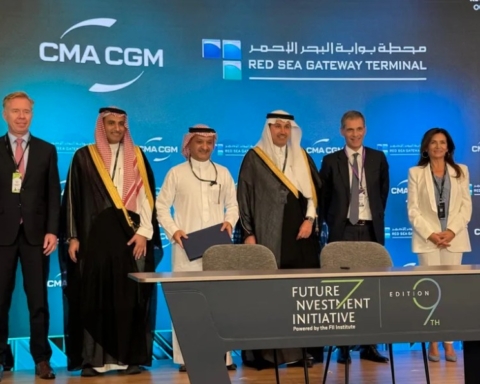Who said that direct investment by foreign companies must necessarily be seen as a risk factor, something negative?
In a scenario where concerns over China’s growing influence in European and international strategic infrastructure are gradually leading the US and Europe to review their trade policy with Beijing, encouraging the adoption of decoupling (in the case of the US) and derisking (in the case of the EU) policies basically geared towards reducing economic interdependence with China, there are those who see foreign takeovers in the maritime and logistics sector as an opportunity for growth, provided there are the right synergies between investors and local businesses.
“When talking about foreign investments, there is a tendency to confuse the ones of a purely financial nature with those aimed at creating new wealth and production capacity,” Fratelli Cosulich Group president Augusto Cosulich tells Port News.
“As an entrepreneur, I note how vertical integration processes involving large shipping companies are multiplying, in Italy too. This trend has been going on for some time. It affects the major shipping groups, including Cosco, closely.”
How should these processes be interpreted? “As is always the case, the truth lies somewhere in-between. Some acquisitions are only useful for strategically strengthening the investor’s presence in the area. Others, on the other hand, generate direct development opportunities for everyone’.
In Augusto Cosuluch’s opinion, the 100% takeover of Trasgo that was finalized through Coscos, the joint venture between Cosco Shipping and F.lli Cosoluch, is a case-in-point: “Trasgo is a company that operates nationally and internationally in integrated logistics; we were the ones who approached Cosco with the possibility of acquiring it,” he admits. “We had equal stakes in the investment and ensured that the Italian nature of the company was safeguarded, maintaining current employment levels and guaranteeing a management that, with the exception of the president’s position, is all Italian.
Ft.lli Cosulich can boast over 30 years’ collaboration with the Chinese shipowner group, with which they have set up two high-level partnerships: Coscos, specialising in logistics, and Cosco Shipping Line Italy, focusing on container transportation. “We have never had any problems in our relations with Chinese partners over the years. With the Trasgo deal we saw a prospect for expanding our interests in the core business of logistics. Our alliance with Cosco allows us to bring new traffic to the company that has been taken over and, at the same time, to bring the added value of our experience as local entrepreneurs’.
According to Mr. Cosulich it’s a win-win alliance: “Since January, the volumes handled by Trasgo have increased, so much so that we now need new warehouses and space. We are exploring new opportunities for collaborating with Cosco for the future: We have started a series of due diligences for purchasing other companies. With our partner we are also evaluating new businesses in the marine energy sector, especially related to the development and widespread use of methanol and hydrogen.
In Mr. Cosulich’s view, the virtuous collaboration with Beijing shows that it is possible to set up a mutually beneficial relationship with large shipping companies. However, Italian entrepreneurs must play their part: “Over the years, the Cosulich group has invested in a large number of activities in the logistics, marine energy and steel fields. We got ourselves up to our necks in debt but we are glad we did, because it is only by spending our own resources that we do business. In Italy, on the other hand, there is a certain reluctance to invest. It is no secret that the dormant current accounts in each national bank, at least in the most important ones, now amount to between 15 and 30 billion dollars.”
Lack of courage is something that, according to Cosulich, is typical of Italian entrepreneurship. Which in the maritime-port sector has gradually lost its points of reference: “Our country had a strong tradition in this industry, I am thinking of the Ravano, Cameli, Fassio, Costa. This tradition has disappeared. Although with a few important, prestigious exceptions, today Italy has no global players in the sector and no entrepreneurs who have the courage to set up synergetic collaborations with the big shipowner giants.”
The reason why Italy is unable to develop an Italian entrepreneurship interested in doing business in the sector is linked, according to Cosulich, to several factors: “Company succession problems are paradoxically one of the obstacles to setting up large companies, but the reluctance to invest is definitely the main drawback.” Another issue is the continuing rifts between associations: ‘The disharmonies between Confitarma and Assarmatori have not been good for Italy,’ Cosulich admits.
Translation by Giles Foster




